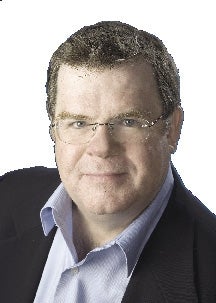Four things to expect from your banker

When it comes to banks, businesses have a love/hate relationship. The banker is usually there when you don't need them, but too frequently not able to help when you do.
I'd like you to meet Sal Cabibo. Sal is a relationship manager with Wells Fargo Bank. Sal works with small- to middle-market companies in the Tucson market, primarily those companies with revenues up to $20 million per year. Sal meets and exceeds his goals every year.
There are thousands of bankers across the country whose job description would match Sal's, at least on paper. Sal, though, is the banker that defies expectations. Sal delivers on the things business owners hope for and expect from their banker. In order, those things are understanding, empathy, trust, and then solutions.
Sal seeks first to understand. Sal's approach to everything begins with the person. He's not focused on whether there is a deal, or even the possibility of a deal in the offing. Sal just wants to get to know you and to understand who you are and what your business is all about.
Sal recognizes in terms of products and services, banks all sell the same stuff. Sure, there may be some variations in strength of offering and terms, but in essence, money and money management doesn't change a lot from institution to institution.
Sal recognizes money for a business owner is a very personal thing. In order for a customer to open up so Sal can understand his/her business, that customer needs to share a lot of personal financial information.
As Sal shared with me, learning about this information plays into the heart of what Sal really sells – honesty, integrity and character, which is why Sal begins every encounter by listening and seeking to understand.
Understanding leads to the second expectation everyone should have of their banker – empathy. Empathy is the feeling you understand and share another person's experiences and emotions: the ability to share someone else's feelings. When one seeks first to understand, the opportunity to empathize builds.
Sal understands entrepreneurs, having worked with them for almost 30 years. His experiences have enabled him to appreciate the trials and tribulations of what business owners go through on a daily basis. That's why he is so well matched to the market he serves. He can empathize with a customer's situation because he's been there before. He knows the facts of the situation, and he feels the emotion of the situation.
This is critically important.
Empathy opens the door for building trust. Trust is the third expectation. When there is trust, customers are more open to sharing not only their situation, but also their future goals and desires. Not just business and financial goals, but personal desires. The personal motivations driving them to do what they do.
This leads to the fourth expectation – solutions. I said earlier most banks sell basically the same thing. Sal has at his disposal, through Wells Fargo, almost any kind of financial solution a customer might need or desire. Sal selfishly leverages these resources and solutions, approaching each customer situation from a team perspective.
From a position of trust, Sal introduces specific resources and solutions when and where they are needed. For example, the line of credit is established now because forecasts indicate the customer's industry will probably experience a downturn sometime in the next 2-3 years. Or for the expanding customer, Sal sets up the construction and/or equipment loans early in the process. The customer has at least financial peace of mind as they contemplate their next big step.
Sal described his approach very succinctly. Most salespeople see a need and sell a solution – a transactional approach. Sal builds a relationship first. From a relationship built on trust, Sal is in a position to solve problems, be they immediate or anticipated; solutions in anticipation of needs rather than panicked reactions.
For the customer, this describes the love side of the banker relationship. Sal's there before you need him. When the unexpected hits, he's there too.
Ken Cook is the co-founder of How to Who, an organization focused on helping people effectively build relationships and building business through those relationships. Learn more at www.howtowho.com.








0 Comments